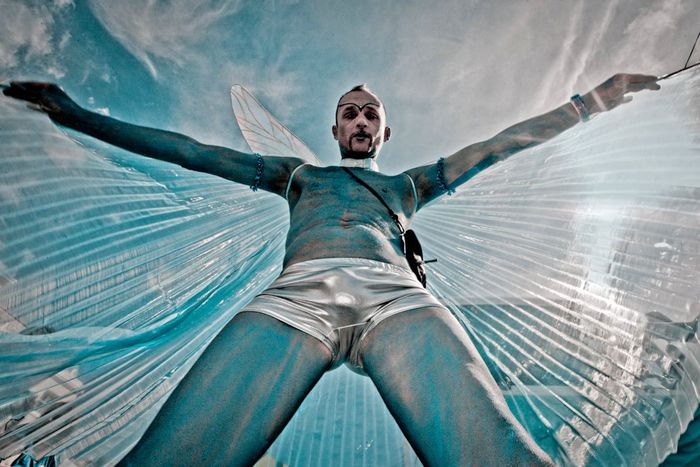
Love and Marriage: Slovak Gays Can Have One But Not The Other
Published on
On June 4th, the government of Slovakia defined marriage as a unique union between one man and one woman. The decision remains controversial with segments of the Slovakian population rejoicing and others weeping.
On June 4th, the Slovak Parliament amended its constitution to define marriage as a unique union between man and woman. The proposal was submitted by the opposition Christian Democratic Movement (KDH) who got the support of the ruling Social Democratic Party (SMER), presenting and voting the amendment jointly with SMER’s judicial reforms. The day after the voting, Amnesty issued a statement condemning the amendment for breaching international and European human rights law by discriminating on the ground of sexual orientation.
"What can you say? You don’t have words for this anymore. People are really trying to change it and it’s still not changing. Nothing’s changing," sighs Vladimira Hradecká, a documentary filmmaker. "Maybe we are starting to be more proud in the LGBT community. Like, ‘I’m who I am, so fuck you’. Maybe that has changed."
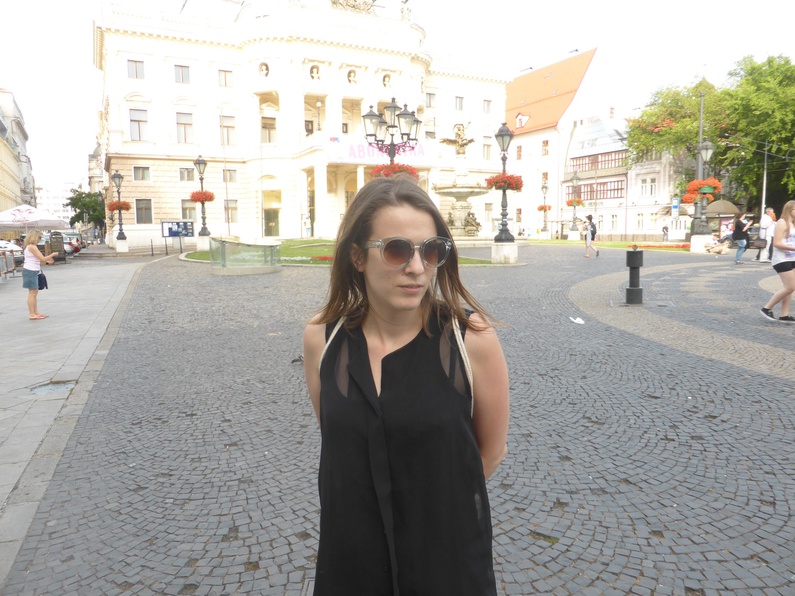 She has filmed Pride in Slovakia and she is currently working on a documentary about gay Christians — the Roman Catholic Church of Slovakia is against homosexuality. In a letter that was read in all churches last winter, the Conference of Bishops of Slovakia (KBS) labeled gender equality ‘the culture of death’ and same-sex marriages as ‘sodomitic mockery'. Vladimira thinks the new constitution won’t affect her, but if she wants to start a family, maybe it will. Practical issues like buying a house or getting information about an ill partner affect all unmarried couples, as Slovakia has no civil unions.
She has filmed Pride in Slovakia and she is currently working on a documentary about gay Christians — the Roman Catholic Church of Slovakia is against homosexuality. In a letter that was read in all churches last winter, the Conference of Bishops of Slovakia (KBS) labeled gender equality ‘the culture of death’ and same-sex marriages as ‘sodomitic mockery'. Vladimira thinks the new constitution won’t affect her, but if she wants to start a family, maybe it will. Practical issues like buying a house or getting information about an ill partner affect all unmarried couples, as Slovakia has no civil unions.
Vibrant, Positive, Happy: The Gay Community of Bratislava
Down narrow stone steps not far from the old city centre lies the Be Happy Club. Only a small rainbow under the bar’s sign reveal that this is Bratislava’s only gay bar. As Vienna and Budapest are close, with a bigger and better gay scene, "there is not room for another gay bar in Bratislava," says Feri Szarka, in a cerise polo shirt behind the bar. He switched bartending in posh hotels for the bar he already frequented, and he is happier. "We have a family here. I know 80% of the customers."
Though Feri Szarka has discussed the constitutional change with many customers, he thinks most people are indifferent. "KDH are losing votes so they needed to do something. It’s political strategy. People don’t care because they are already living in their relationships. If you want to be together, you don’t need marriage. People want civil unions for legal reasons. But love doesn’t need a paper."
On the bar stand small glass bowls filled to the brim with peanuts. There is a small rainbow-patterned table cloth with a small purple heart sewn onto it – a makeshift solution to a cigarette burn.
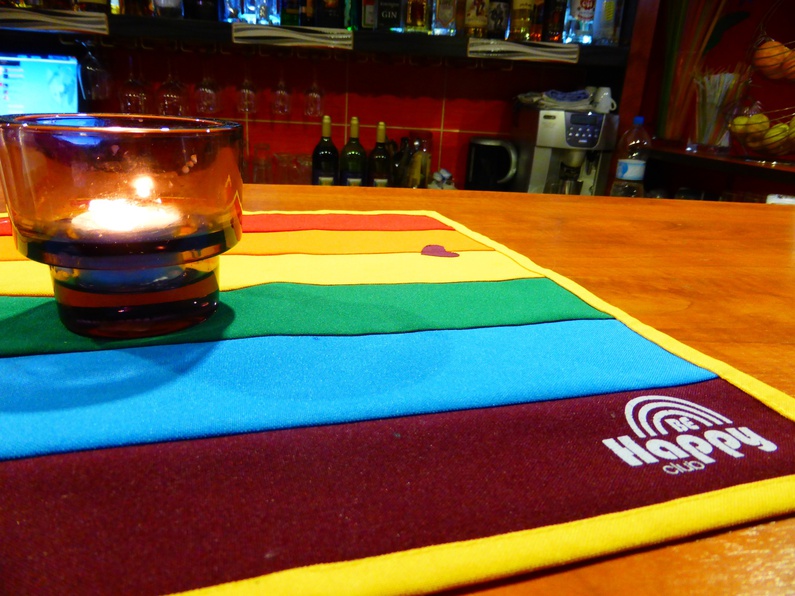 Feri’s colleague comes to hang up a framed picture of a half-naked muscular man. The picture is cut into slices making it look like a broken mirror. The same kind of pictures line all the walls – a team of American football players from France, says Feri, but his colleague insists they are Dutch and takes us to the salon in the back to see the rest of the collection.
Feri’s colleague comes to hang up a framed picture of a half-naked muscular man. The picture is cut into slices making it look like a broken mirror. The same kind of pictures line all the walls – a team of American football players from France, says Feri, but his colleague insists they are Dutch and takes us to the salon in the back to see the rest of the collection.
Between East and West
Dressed in a grey suit and square black eyeglass frames, Martin Poliačik sits in a bookcase lined room of the Slovak Parliament. His party, Freedom and Solidarity (Sloboda a Solidarita) has had civil unions for LGBT couples on their programme since their foundation in 2009. "We are the last in the region – Hungary, Poland and Czech Republic all have same-sex civil unions," he says. Even Croatia, who made a similar amendment to its constitution after a referendum in 2013, just passed a law allowing civil unions for same-sex couples.
"We are moving towards a civilisation pattern that is closer to Russia than to the West. We are at the border geographically, historically and culturally and we always had to choose. The constitutional change was presented as a defense against the wave of decadency from the EU and the West. As the number of countries with gay marriage rises, some people consider this a threat for traditional values and culture in Slovakia."
With only six percent of votes, his party is unable to pass the development themselves. And if civil unions are some day passed in parliament now, he thinks the issue might first have to go through the constitutional court.
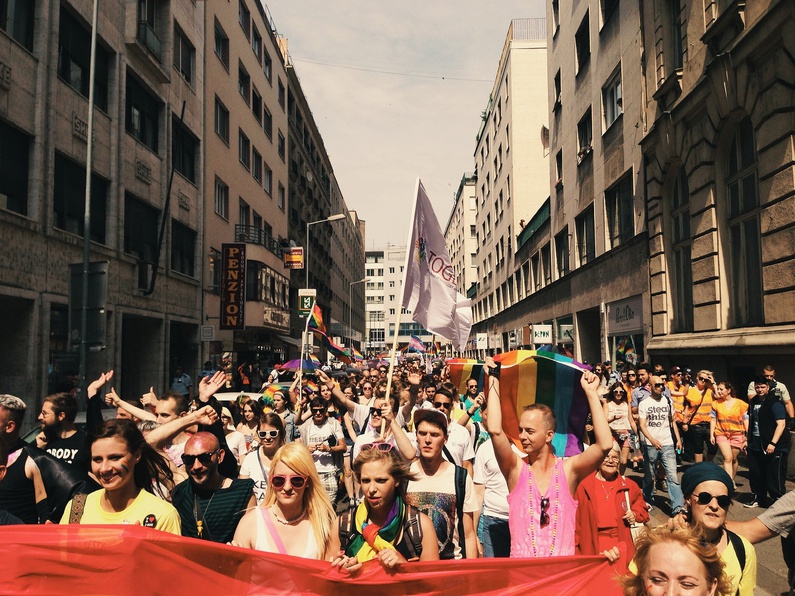 Slovakia ranks 24th among 49 European countries in terms of laws and policies affecting the human rights of LGBTI people. Pride Bratislava has only been held since 2010. Occurring just two weeks after the amendment was passed, this year the theme was ‘different families’. "Not only same-sex couples but also single and divorced parents, because the constitution now protects only one type of family, based on marriage between a man and a woman," says Martin Macko, director of the gay rights group Iniciativa Inakost.
Slovakia ranks 24th among 49 European countries in terms of laws and policies affecting the human rights of LGBTI people. Pride Bratislava has only been held since 2010. Occurring just two weeks after the amendment was passed, this year the theme was ‘different families’. "Not only same-sex couples but also single and divorced parents, because the constitution now protects only one type of family, based on marriage between a man and a woman," says Martin Macko, director of the gay rights group Iniciativa Inakost.
He was surprised by the amendment because, though KDH have proposed it before, they never had the support of SMER – until now. He thinks SMER used the marriage amendment to get support for their judicial reforms. He is not alone. The European Parliament’s Intergroup on LGBT rights accused SMER for working ‘with arch-conservatives to populist ends’ and ‘trampling the very values they claim to defend’.
Defending A 'Traditional' Family
With 150 seats and one chamber, laws can be changed easily in the Slovak Parliament. According to Martin Dilong (KDH), that was one motivation for putting the marriage definition in the constitution. He is noticeably proud that his party managed to achieve a constitutional change with only 13 seats in parliament.
"Some think this proposal discriminates LGBT people but I reject this. We respect all people. Sexual orientation can’t be a prerequisite for extra rights. There are different relationships but they are not the same as a permanent union. Things which are the same, should be treated the same and things which are different, should be treated differently," he says.
The amendment is not the only case where the family has become an ideological battleground in Slovakia. Last September, a pro-life march in Košice organized by the Conference of Bishops gathered massive participation. The event also stressed the issue of the traditional family based on heterosexual marriage and gave fruit to Alliance for Family (Aliancia za rodinu), an umbrella organization for pro-life and pro-family NGOs.
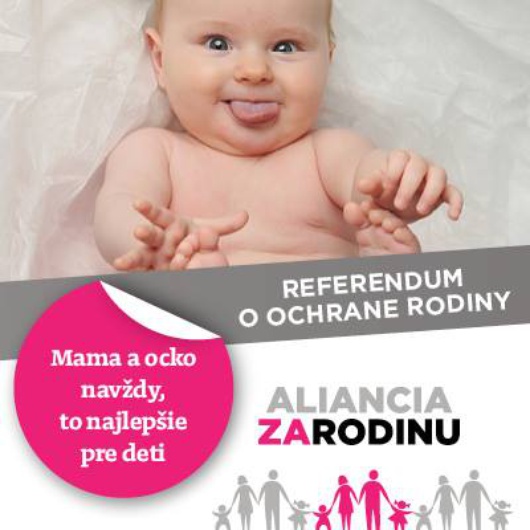 Alliance for Family think that no other form of partnership than marriage between man and woman should have legal protection, same-sex couples should not be allowed to adopt and parents should be able to control what sex education their children receive. And they are collecting signatures to hold a referendum to ask Slovaks if they agree.
Alliance for Family think that no other form of partnership than marriage between man and woman should have legal protection, same-sex couples should not be allowed to adopt and parents should be able to control what sex education their children receive. And they are collecting signatures to hold a referendum to ask Slovaks if they agree.
Spokesperson Peter Kremsky, says it’s a reaction to what is happening in western Europe. "People are more individualistic and egoistic as part of the culture, but the rest of the world is more family oriented. In Europe, everything is considered family now, even a single parent or two parents of the same sex." Peter Kremsky believes that men and women have different tasks and both are needed to complete a family. "If circumstances leave a parent alone, of course we’ll help them, but we cannot just say that it’s fine."
The Long Road To Equality
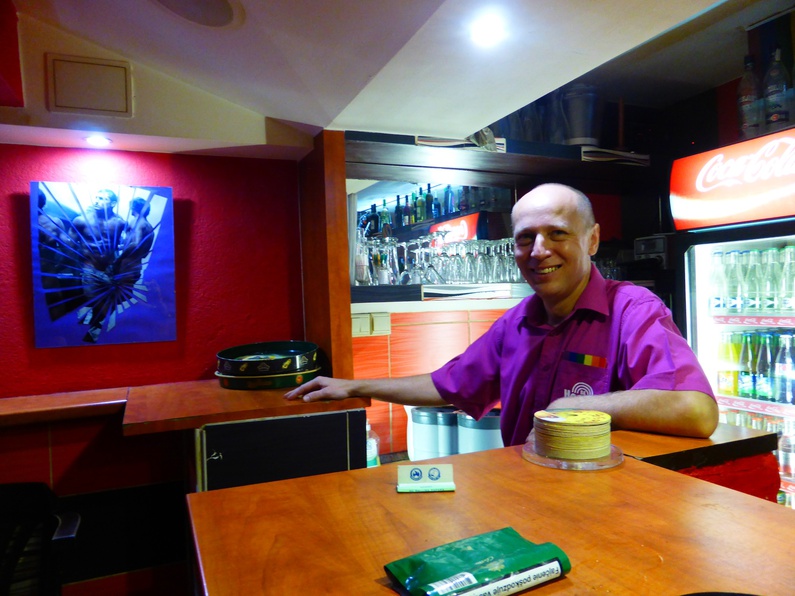 Back in Be Happy Club, three Russian speaking men in their 40s come in and scan the empty bar with their glance ending on us girls in the bar. "Are you free?" one of the men in a sleeveless shirt asks hesitantly. We are perplexed, but Feri understands immediately and directs the man to the downtown topless bar. He says he finds it amusing to see the reaction of people who don’t realize it’s a gay bar until they are inside. One time a man came into the bar and after a while he asked why there were so many gay men. When Feri explained, indicating the gay flags, the man answered, "Oh, it isn’t for a Free Tibet?"
Back in Be Happy Club, three Russian speaking men in their 40s come in and scan the empty bar with their glance ending on us girls in the bar. "Are you free?" one of the men in a sleeveless shirt asks hesitantly. We are perplexed, but Feri understands immediately and directs the man to the downtown topless bar. He says he finds it amusing to see the reaction of people who don’t realize it’s a gay bar until they are inside. One time a man came into the bar and after a while he asked why there were so many gay men. When Feri explained, indicating the gay flags, the man answered, "Oh, it isn’t for a Free Tibet?"
This article is part of a special series devoted to Bratislava. It's part of eu-topia: time to vote, a project run by cafébabel in partnership with the hippocrène foundation, the european commission, the ministry of foreign affairs and the evens foundation.





